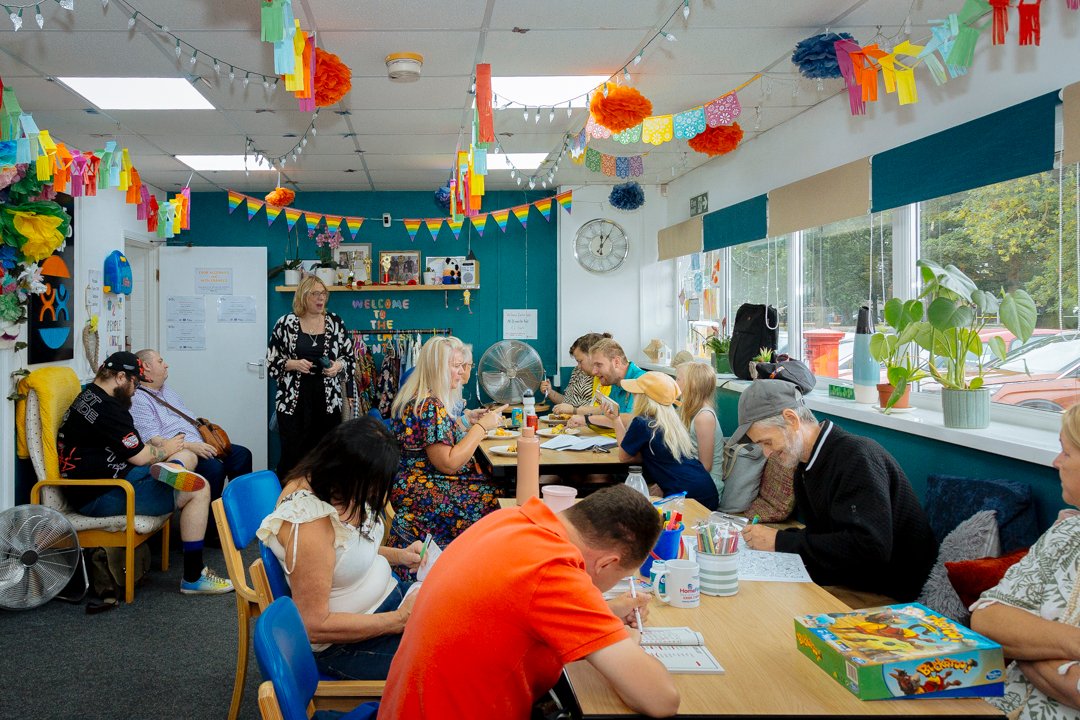Protection for everyone in our communities
Destitution should never be used as a policy tool. Everyone in our communities should have a safety net to fall back on in hard times and government policy should not drive people into destitution, no matter where they have come from or how. These are not radical statements, yet they are at odds with where we currently find ourselves.
Our systems should not drive hardship and destitution
Our immigration and asylum systems have seen profound changes in recent years. The introduction of the ‘hostile environment’ agenda in 2012 included many measures which sought ‘to make life difficult for individuals without permission to remain in the UK’ (House of Commons Home Affairs Committee, 2018) but had far wider harmful consequences for migrants and their families (Rogaly et al, 2021), particularly members of the Windrush generation (Williams, 2018). Brexit, and the end to freedom of movement, has significantly reshaped the experiences of European Economic Area (EEA) nationals living in the UK. Most recently, the Nationality and Borders Act 2022 and the Illegal Migration Act 2023 have removed or significantly restricted the rights of people seeking refuge and asylum in the UK. We anticipate the number of people living in our communities but completely excluded from support will grow as a result, putting further pressure on local services, charities and community safety (Hay, 2023).
We must reshape our migration and asylum systems so they do not drive hardship and destitution. Two briefings can be downloaded below setting out recommendations for a fair and compassionate immigration system and designing out destitution from the asylum system.
People who move to the UK are at heightened risk of destitution
There is a clear connection between experiencing destitution and being a migrant to the UK. JRF and Heriot Watt’s latest Destitution in the UK report shows a strong and worrying growth in the levels of destitution among migrants (Fitzpatrick et al, 2023). More than a quarter (27%) of destitute households in the UK in 2022 were headed by someone who was not born in the UK, and the risk of destitution for migrants is 35% higher than the average rate.
Since 2019 we have seen a shocking 92% increase in the number of migrant households experiencing destitution. And there is also a close connection between destitution, migrant status and ethnicity: Black, Black British, Caribbean or African-led households were three times more likely to be destitute than their population share. Among Asian, Black and ‘other’ ethnic groups experiencing destitution, a clear and large majority were born overseas (Fitzpatrick et al, 2023).
These are deeply concerning statistics that government policy choices play a large part in. For example, the vast majority of people moving to the UK to work, study or join family have ‘no recourse to public funds’ (NRPF), which restricts their eligibility for public funds such as many mainstream benefits. This leaves them without a reliable safety net should they fall on hard times. Long waits for an asylum decision and the lack of support once people are granted refugee status also leave people highly vulnerable to destitution.
Coming to the UK to live, work, be with family, or to seek safety, should have no connection to people’s risk of experiencing deep poverty. This is a link which must be broken.
Breaking the link between migration status and destitution
Government’s first step should be a commitment: that no one living in our communities experiences destitution, whether they were born in the UK, or have moved from elsewhere to make a life here. It is for our democratic process to decide what sort of rules our immigration system has, but whatever shape this takes, pushing people into destitution must be a red line.
JRF does not have expertise on migration and asylum policy, but we can see the strong connection with hardship and destitution. As such, we have drawn on the expertise and policy recommendations of well-respected expert organisations across the immigration, asylum and poverty sectors to write two policy briefings: one focused on the asylum system and one on the wider immigration system and restricted eligibility for help when times are hard (the ‘no recourse to public funds’ visa condition).
Underpinning these recommendations is a set of principles which should apply across the systems and services of the UK. They are key to delivering asylum and migration systems which are competent, compassionate and coherent:
- Treating people with dignity, respect and compassion
- Timely decision-making – not leaving people in limbo
- Getting the decision right the first time
- Ensuring people have support to move through the system and get on with their lives.
Delivering on this first principle must be driven from the top down – from the culture and principles set out by Government. Importantly, this should never involve creating a culture, or using rhetoric, which demonises or mistreats people. Evidence from experts shows that policies like the hostile environment have fostered racism and discrimination (Qureshi et al, 2020).
As part of creating a more compassionate and competent migration and asylum system, government should indicate from the top down the culture it wants to see within our immigration and asylum systems. This should be one that embeds dignity and respect, and does not foster racism, discrimination, or drive destitution. There have been many occasions where policy has fallen short of this low bar in recent years (Electronic Immigration Network, 2023; Leon, 2023; Qureshi et al, 2020; Williams, 2018).
Government should work with expert organisations, and people with direct experience of these issues, to better understand how immigration policy deepens poverty, and design systems which are fair, effective, and compassionate – and which always protect people from destitution.
References
Electronic Immigration Network (2023) High Court judgment provides vital guidance after finding widespread failures in asylum support system. Available at: https://www.ein.org.uk/news/high-court-judgment-provides-vital-guidance-after-finding-widespread-failures-asylum-support (ein.org.uk) [Accessed: 17 October 2023].
Fitzpatrick, S. Bramley, G. Blenkinsopp, J. Wood, J. Sosenko, F. Littlewood, M. Johnsen, S. Watts, B. Treanor, M. McIntyre, J (2020) Destitution in the UK 2020. Available at: https://www.jrf.org.uk/report/destitution-uk-2020 (jrf.org.uk) [Accessed: 17 October 2023].
Fitzpatrick, S. Bramley, G. Treanor, M. Blenkinsopp, J. McIntyre, J. Johnsen, S. and McMordie, L. (2023) Destitution in the UK 2023. Joseph Rowntree Foundation. Available at: https://www.jrf.org.uk/report/destitution-uk-2023
Hay, D (2023) It’s wrong that UK immigration and asylum systems make people destitute. Available at: https://www.jrf.org.uk/blog/its-wrong-uk-immigration-and-asylum-systems-make-people-destitute (jrf.org.uk) [Accessed: 17 November 2023].
House of Commons Home Affairs Committee (2018) Immigration policy: Basis for building consensus. Available at: https://publications.parliament.uk/pa/cm201719/cmselect/cmhaff/500/500.pdf (parliament.uk) [Accessed: 17 October 2023].
Leon, L (2023) Understanding Migrant Destitution in the UK: Literature Review. Available at: https://www.compas.ox.ac.uk/wp-content/uploads/Understanding-Migrant-Destitution-in-the-UK-Literature-Review.pdf (compas.ox.ac.uk) [Accessed: 18 October 2023].
Qureshi, A, Morris, M, Mort, L (2020) Access denied: the human impact of the hostile environment. Available at: https://www.ippr.org/research/publications/access-denied (ippr.org.uk) [Accessed: 17 October 2023].
Rogaly, K, Elliott, J, Baxter, D (2021) What’s causing structural racism in housing? Available at: https://www.jrf.org.uk/report/whats-causing-structural-racism-housing (jrf.org.uk) [Accessed: 17 October 2023].
Williams, W (2018) Windrush Lessons Learned Review: Independent review by Wendy Williams. Available at: https://www.gov.uk/government/publications/windrush-lessons-learned-review (gov.uk) [Accessed: 17 October 2023].
Williams, W (2018) Windrush Lessons Learned Review: Independent review by Wendy Williams. Available at: https://www.gov.uk/government/publications/windrush-lessons-learned-review (gov.uk) [Accessed: 17 October 2023].

This briefing is part of the neighbourhoods and communities topic.
Find out more about our work in this area.

